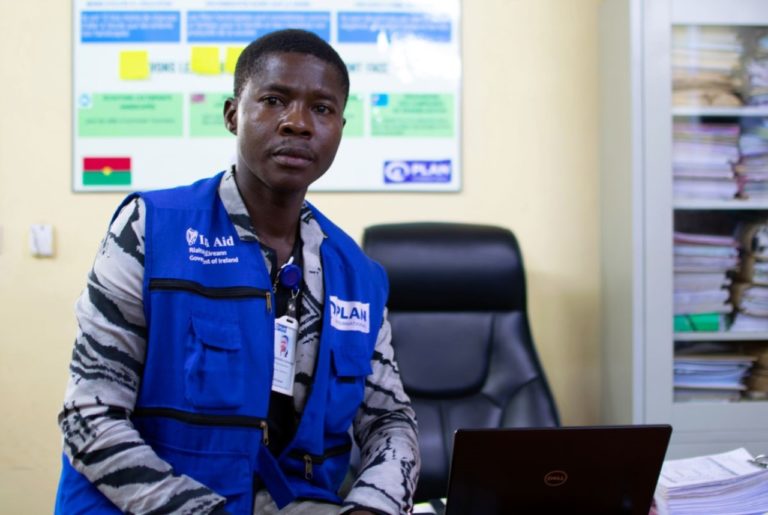The EQuIP programme, funded by Irish Aid, works comprehensively with children and their families throughout Burkina Faso, Guinea, Guinea Bissau and Mali with the aim of mobilising communities and government authorities to provide high quality, inclusive education for all.
“EQuIP focuses on ensuring that the most marginalised children and young people have access to education and vocational training, especially girls and children and young people with disabilities,” explains Abdou Savadogo, EQuIP project coordinator.
“People with disabilities and their families are often subjected to discrimination and exclusion. It’s so important that they have access to decent work and an income, which is core to our vocational training.”

Accelerated Education Programmes focus on out of school children, with the intention of re-integrating them in to mainstream primary schooling. As part of the EQuIP project scope, these programmes also engage in national level advocacy, policy and education strategies with specific targets in each country.
For example, in Guinea-Bissau, following the results of Plan International’s work, the Ministry of National Education will implement a national Accelerated Learning Strategy across the country to encourage re-integration of students.
Children with disabilities are amongst the most marginalized people in society – especially in low-income countries and in humanitarian settings. They are often unable to fulfill basic rights such as access to education and social participation, not least because people do not see their abilities, and do not know how to include children with disabilities in mainstream activities.
Plan International Ireland and Finland, together with the UNESCO Chair in Inclusive Physical Education, Sport, Recreation and Fitness developed P2I to address this issue, as part of the EQuIP project scope. P2I is a training methodology that facilitates disability inclusion and improved education though inclusive sport and play. Inclusivize is a verb created by the UNESCO Chair to combine all actions required to actively promote inclusion.
P2I empowers community volunteers and educators to engage with their communities to include children with disabilities in sports and physical activities. The goal is to create a broader understanding of inclusion within the school setting and strive towards mainstreaming diversity ensure effective participation in society for everyone.
The participants of the training learned about disability, inclusion, quality physical education, sport, human rights, international and national policy documents, and then also learned how to adopt teaching methods to include children with disabilities in PE classes and in leisure time.